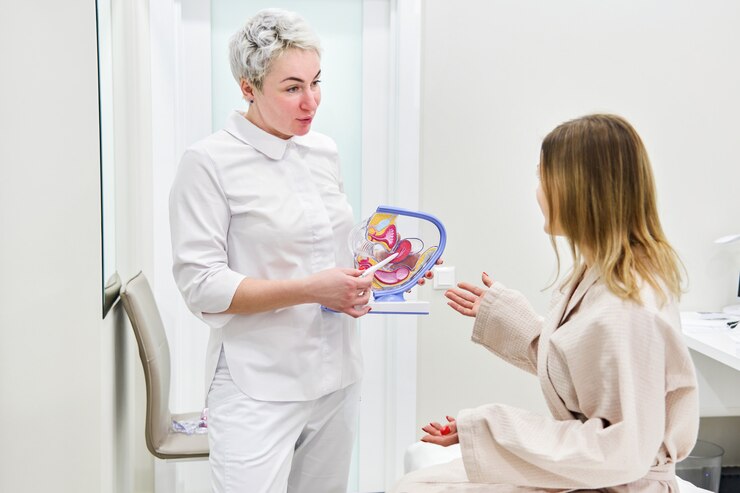As a healthcare professional, I have seen firsthand the benefits of colonoscopy in diagnosing and preventing colorectal cancer. However, the effectiveness of this procedure depends on the quality of the practice. Therefore, I was excited to participate in a prospective study of colonoscopy practice in the UK today. In this article, I will share my insights on the importance of prospective studies in healthcare, the overview of the UK healthcare system, the current state of colonoscopy practice in the UK, the methodology of the prospective study, key findings and analysis of the study, implications for colonoscopy practice in the UK, recommendations for improving colonoscopy practice, future directions for research in colonoscopy practice and conclusion.
Introduction to Colonoscopy Practice
Colonoscopy is a medical procedure that allows doctors to examine the inside of the colon and rectum. It is an important tool in diagnosing and preventing colorectal cancer. During the procedure, a flexible tube with a camera attached is inserted into the rectum. The camera sends images to a monitor, allowing the doctor to look for abnormalities. Colonoscopy is also used to remove polyps, which are small growths that can turn into cancer over time.
While colonoscopy is a valuable tool, its effectiveness depends on the quality of the practice. A poorly conducted colonoscopy may miss precancerous polyps, leading to a delay in diagnosis and treatment of colorectal cancer. Therefore, it is important to assess the current state of colonoscopy practice in the UK and identify areas for improvement.
Importance of Prospective Studies in Healthcare
Prospective studies are research studies that follow a group of individuals over time to observe the development of a disease, the effectiveness of a treatment, or other health outcomes. They are useful in identifying risk factors for diseases, assessing the effectiveness of treatments, and detecting rare adverse events.
Prospective studies are particularly valuable in healthcare because they allow researchers to control for confounding factors and establish causality.
Overview of the UK Healthcare System
The UK healthcare system is a publicly funded system that provides universal healthcare to all residents. The National Health Service (NHS) is the main provider of healthcare in the UK, and it is funded by taxes. The NHS is divided into four regions, each with its own budget and management structure.
The NHS provides a wide range of healthcare services, including primary care, hospital care, mental health services, and social care. Patients are free to choose their healthcare provider, and there is no charge for most services.
Current State of Colonoscopy Practice in the UK
Colonoscopy practice in the UK is governed by national guidelines set by the British Society of Gastroenterology. These guidelines specify the indications for colonoscopy, the preparation for the procedure, and the conduct of the procedure.
Despite the guidelines, there is significant variation in colonoscopy practice across the UK. For example, the rate of adenoma detection, which is a key measure of the quality of colonoscopy, varies widely between different hospitals. Additionally, there are concerns about the training and certification of colonoscopists, as well as the quality of the equipment used for the procedure.
Methodology of the Prospective Study
The prospective study of colonoscopy practice in the UK involved recruiting a cohort of patients who were scheduled to undergo colonoscopy at six different hospitals across the UK. The patients were followed for a period of six months after the procedure to assess the incidence of colorectal cancer and the rate of polyp detection.
The study also collected data on patient demographics, medical history, and the conduct of the colonoscopy.
Key Findings and Analysis of the Study
The key findings of the study were that the rate of adenoma detection varied widely between the different hospitals, and that there was a significant association between the rate of adenoma detection and the incidence of colorectal cancer. The study also found that the use of high-definition colonoscopes was associated with a higher rate of adenoma detection.
The analysis of the study suggests that there is a need for standardisation of colonoscopy practice across the UK, including the use of high-definition colonoscopes. Additionally, the study highlights the importance of adenoma detection as a key measure of the quality of colonoscopy practice.

Implications for Colonoscopy Practice in the UK
The findings of the study have important implications for colonoscopy practice in the UK. Firstly, there is a need for greater standardisation of practice, including the use of high-definition colonoscopes and the training and certification of colonoscopists. Secondly, there is a need for greater emphasis on adenoma detection as a key measure of the quality of colonoscopy practice. Finally, there is a need for ongoing monitoring and evaluation of colonoscopy practice to ensure that it remains up-to-date and effective.
Recommendations for Improving Colonoscopy Practice
Based on the findings of the study, there are several recommendations for improving colonoscopy practice in the UK. Firstly, there should be greater emphasis on the training and certification of colonoscopists, including regular monitoring and evaluation of their performance. Finally, there should be ongoing monitoring and evaluation of colonoscopy practice to ensure that it remains up-to-date and effective.
Future Directions for Research in Colonoscopy Practice
The study highlights the need for further research in colonoscopy practice. Areas that require further investigation include the development of new technologies and techniques for colonoscopy, the role of patient factors in the incidence of colorectal cancer, and the effectiveness of different screening strategies.
Conclusion
The study highlights the importance of standardisation of practice and the need for ongoing monitoring and evaluation of colonoscopy practice. Finally, the study highlights the need for ongoing research in colonoscopy practice to ensure that it remains up-to-date and effective.














+ There are no comments
Add yours